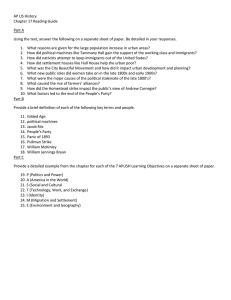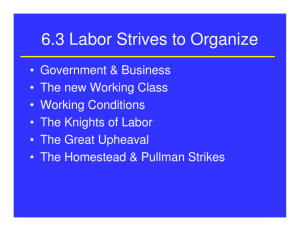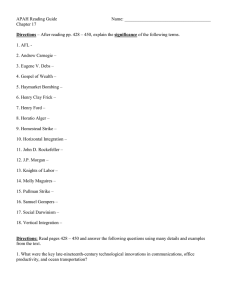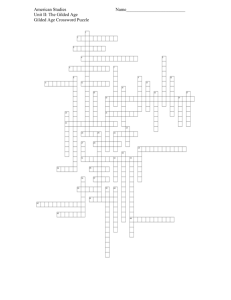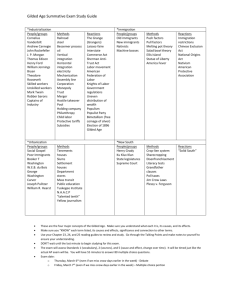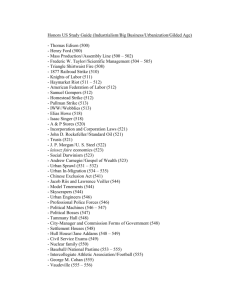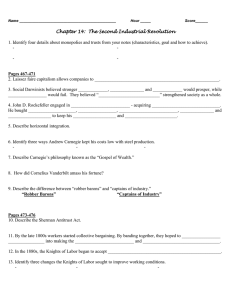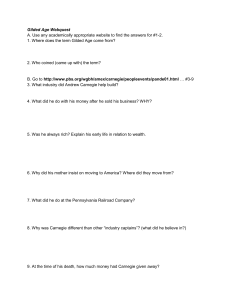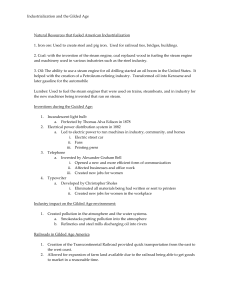US History, Unit / Goal 4.2 and 5 Study Guide
advertisement
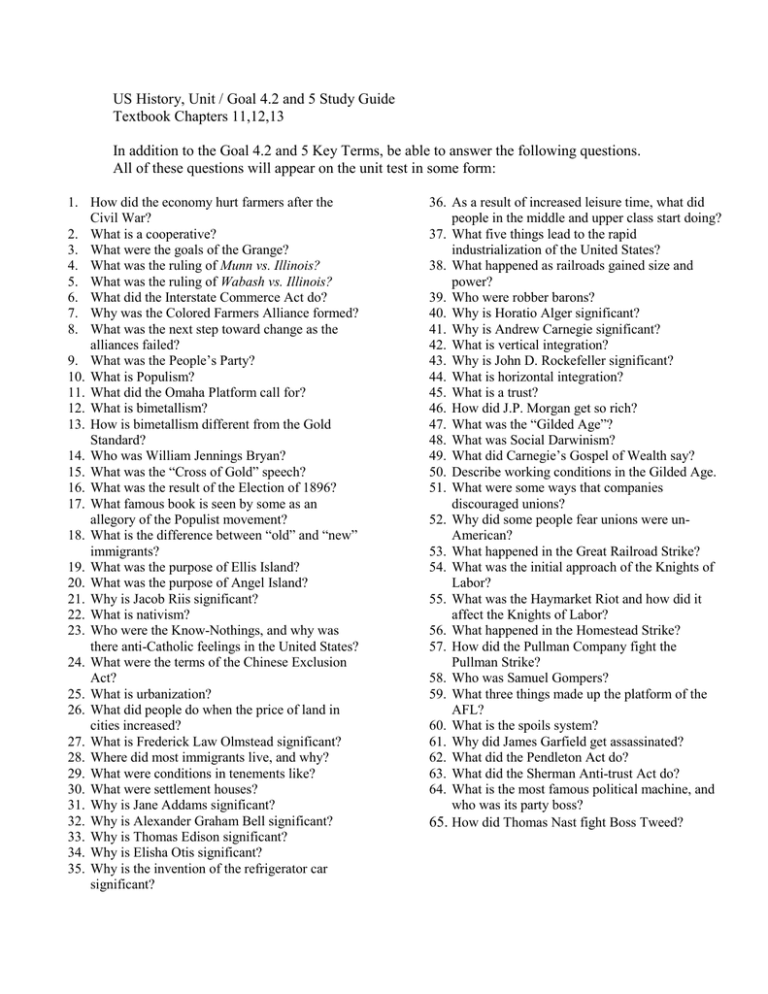
US History, Unit / Goal 4.2 and 5 Study Guide Textbook Chapters 11,12,13 In addition to the Goal 4.2 and 5 Key Terms, be able to answer the following questions. All of these questions will appear on the unit test in some form: 1. How did the economy hurt farmers after the Civil War? 2. What is a cooperative? 3. What were the goals of the Grange? 4. What was the ruling of Munn vs. Illinois? 5. What was the ruling of Wabash vs. Illinois? 6. What did the Interstate Commerce Act do? 7. Why was the Colored Farmers Alliance formed? 8. What was the next step toward change as the alliances failed? 9. What was the People’s Party? 10. What is Populism? 11. What did the Omaha Platform call for? 12. What is bimetallism? 13. How is bimetallism different from the Gold Standard? 14. Who was William Jennings Bryan? 15. What was the “Cross of Gold” speech? 16. What was the result of the Election of 1896? 17. What famous book is seen by some as an allegory of the Populist movement? 18. What is the difference between “old” and “new” immigrants? 19. What was the purpose of Ellis Island? 20. What was the purpose of Angel Island? 21. Why is Jacob Riis significant? 22. What is nativism? 23. Who were the Know-Nothings, and why was there anti-Catholic feelings in the United States? 24. What were the terms of the Chinese Exclusion Act? 25. What is urbanization? 26. What did people do when the price of land in cities increased? 27. What is Frederick Law Olmstead significant? 28. Where did most immigrants live, and why? 29. What were conditions in tenements like? 30. What were settlement houses? 31. Why is Jane Addams significant? 32. Why is Alexander Graham Bell significant? 33. Why is Thomas Edison significant? 34. Why is Elisha Otis significant? 35. Why is the invention of the refrigerator car significant? 36. As a result of increased leisure time, what did people in the middle and upper class start doing? 37. What five things lead to the rapid industrialization of the United States? 38. What happened as railroads gained size and power? 39. Who were robber barons? 40. Why is Horatio Alger significant? 41. Why is Andrew Carnegie significant? 42. What is vertical integration? 43. Why is John D. Rockefeller significant? 44. What is horizontal integration? 45. What is a trust? 46. How did J.P. Morgan get so rich? 47. What was the “Gilded Age”? 48. What was Social Darwinism? 49. What did Carnegie’s Gospel of Wealth say? 50. Describe working conditions in the Gilded Age. 51. What were some ways that companies discouraged unions? 52. Why did some people fear unions were unAmerican? 53. What happened in the Great Railroad Strike? 54. What was the initial approach of the Knights of Labor? 55. What was the Haymarket Riot and how did it affect the Knights of Labor? 56. What happened in the Homestead Strike? 57. How did the Pullman Company fight the Pullman Strike? 58. Who was Samuel Gompers? 59. What three things made up the platform of the AFL? 60. What is the spoils system? 61. Why did James Garfield get assassinated? 62. What did the Pendleton Act do? 63. What did the Sherman Anti-trust Act do? 64. What is the most famous political machine, and who was its party boss? 65. How did Thomas Nast fight Boss Tweed?
